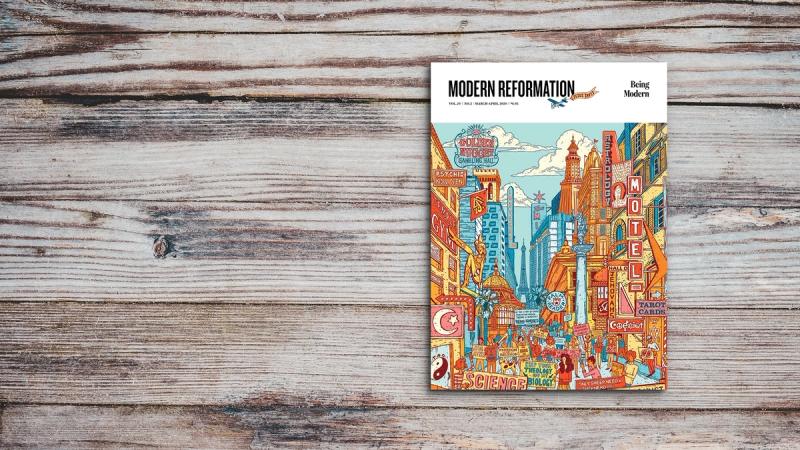This issue of Modern Reformation is the second and final in a short series that began with our January/February issue. In these two issues, we’re tackling the challenge of our contemporary culture. In January/February, we debunked the “myth of secularism.” Now, in this issue, we’re helping you understand where your unbelieving friends and neighbors are coming from and how you can address the questions (and objections) they have about the Christian claim.
The great hubris of our modern culture is the historical amnesia that at best forgets all that has come before us, or at worst denigrates it as a kind of pre-Enlightenment state from which we were lucky to have escaped. But as the Preacher of Ecclesiastes reminds us, “There is nothing new under the sun” (1:9). Being modern is really just a new way of being ancient. It’s only as we understand the ancient foundation of our modern confusion that we will be able to minister effectively in the world.
That’s the claim made by our editor-in-chief, Michael Horton, in our first article. Dr. Horton uses three cities (one ancient, one medieval, and one modern) to trace the challenges of belief that have plagued the church from her beginning. This article is a preview of an exciting new book project Dr. Horton is working on.
Our second article comes from Russell Moore, the president of the Ethics and Religious Liberty Commission, the public policy arm of the Southern Baptist Convention. Dr. Moore recently spoke at a White Horse Inn event on “Engaging a Culture of Unbelief.” His talk, transcribed here for the magazine, is a brilliant survey of both the challenges the church faces and the answers that have proven effective in every age.
Our final article is from Rachel Stahle, a scholar specializing in the work of America’s first theologian, Jonathan Edwards. In her article, Dr. Stahle examines the challenges of pluralism—tracing that challenge from Israel in Egypt, through the early church, to our own modern context. What may have been a great hurdle for early apologists of the faith, Dr. Stahle argues, is now a potential boon to the mission of the church.
In both our January/February issue and in this issue, we are addressing the “modern” in our quest for a modern Reformation. We earnestly believe that the rich resources of the first Reformation can be applied to our contemporary context with great benefit for our churches. We hope that you agree and that you are enjoying content that meets the challenges of our day with confidence in God’s word and in his work throughout history.
I’d love to hear from you as you make your way through this issue. Please e-mail me at editor@modernreformation.org with your own stories of reformation and renewal.
Eric Landry executive editor








